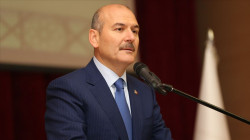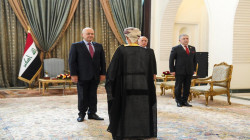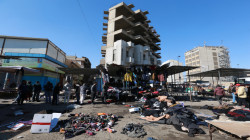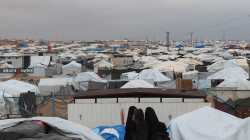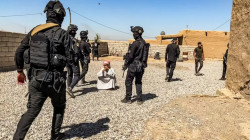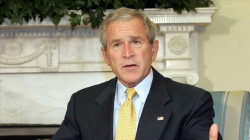IPS: do we still have to fear ISIS?
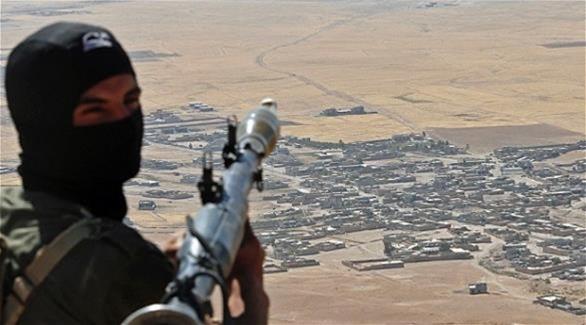
Shafaq News/ The Islamic State's terrorist network has been significantly weakened in recent years. But that doesn't mean it's finished yet, Muhammad Abu Rumman wrote for the International Politics and Society Journal.
On 19 July 2021, the eve of this year’s Muslim Festival of Sacrifice, a suicide bomber blew himself up in the middle of a busy market in Sadr City, a district of Baghdad considered the stronghold of one of Iraq’s largest Shiite currents. Nearly 100 people were killed.
What was shocking was not only the horrific sight of the victims, but also that the ‘Islamic State’ – as many observers saw it – was suddenly back and able to strike this way. The terrorist organisation promptly announced the attack through its Amaq news agency, and its online magazine al-Naba’ devoted an editorial to it the following day commemorating the attack. In addition, the editorial referred to other attacks allegedly carried out by ISIS offshoots in Nigeria, the Sinai, Afghanistan, and Iraqi Kurdistan.
In fact, the question arises whether the attack in Baghdad really came as such a surprise and was an exceptional case without a specific context, or whether – as the ISIS itself repeatedly claims – it means that the bloodthirsty gang is reorganising and developing new clout.
ISIS was never really gone
Four years ago, the Islamic State ‘caliphate’ in Mosul and Raqqa was crushed and not only lost most of its territory in Iraq and Syria, but also most of its leaders, including the ‘Caliph’ Abu Bakr al-Baghdadi. Since then, the Western and Arab press have not talked much about ISIS. However, that does not mean that ‘Da’esh’ is history and that its supporters have submitted to defeat.
In fact, ISIS has always remained active in its home region in Iraq, especially in the ‘Triangle of Terror’ between the provinces of Kirkuk, Nineveh, and Saladin as well as in the desert areas between Anbar and the Iraqi-Syrian border. Moreover, the aforementioned attack was not the first since the caliphate was broken up. On 21 January of this year, two ISIS suicide bombers managed to force their way into a shopping street in Baghdad and kill around 35 people, and wounded 100 others. Then on 15 April, the organisation planted a car bomb in Sadr City’s Urfali Market, killing four people. And also in Sadr City, an explosive device was detonated in Maridi Market on 30 June, injuring 17 people.
Anyone who follows ISIS propaganda and its bold admissions of responsibility for these acts – not only in Iraq and Syria, but also those of its offshoots from East Asia to West Africa – must recognise it would be delusional to think that the terrorist group has come to an end. ISIS is indeed still active and could one day regain strength. Because of its many years’ experience of jihadist movements, it is apparently succeeding in regrouping and adapting to the pressure of persecution after its military defeat. ISIS has coped with the killing of its leadership and has already installed successors. Something similar could already be seen in Afghanistan, when the Taliban were driven from power and their leaders were killed until al-Qaeda leader Osama bin Laden was struck down in 2011.
A brief history of ISIS
The history of ISIS itself shows how adaptable the terrorist militia has always been. Its founder, Abu Musab az-Zarqawi, died in an American air strike in Iraq in 2006, and an attempt to proclaim a state by a forerunner organisation of Daesh in 2007 was thwarted by the Sunni Sahwat campaign initiated by US General David Petraeus. Subsequently, the organisation was visibly weakened, but in 2011 it arose all the stronger.
In 2013, after conquering large stretches of land in Syria and Iraq, it proclaimed an Islamic caliphate. This development marked a turning point in the strategies, propaganda and recruitment tactics of jihadist movements worldwide. The phenomenon of ‘lone wolves’ spread. The establishment of a state of its own attracted tens of thousands of fighters with families who wanted to live under the cruel rule of the IS and to fight for it.
There is no doubt that ISIS has lost much of its power and resources in the past four years, and is nowhere near as much a threat to the security of the world and the region as it was before. That is why hardly any attacks in the name of Daesh have occurred for quite some time – none in Europe, nor in America, Australia or the Arab countries.
One may therefore conclude that the militia is weakened not only militarily, but also ideologically and in its propaganda campaign. However, this front can also be restored, and the organisation is currently making efforts to do so. Crucially, its network on the various continents, especially Africa and Asia, remains intact.
Why is ISIS still attractive?
However, the decisive factor for the strength of the IS will not only be whether it can restore its structures and carry out attacks, or how many de-radicalisation programmes are launched to counter it. It is more important to recognise what makes ISS attractive and how it is therefore always possible for it to reassemble itself. The key words here are marginalisation and lack of participation of large parts of society, along with identity politics, existential fears and the feeling of a lack of justice and of inequality before the law in many countries around the world.
In Iraq, where ISIS is building new cells and trying to regain its power, the militia is still having a hard time. The support of the Sunni population, which is tired of its bloody rule, is crumbling, and it is correspondingly difficult for the terrorists to recruit new fighters.
On the other hand, no political development is emerging that could offer security, freedom, and a future to the Sunnis in Iraq. The Iraqi state offers little to its citizens. It is increasingly coming under Iranian influence and allowing pro-Iranian militias to operate. Therefore, an identitarian approach still remains promising for groups like ISIS, which offers itself as the guardian of Sunni interests in Iraq.
